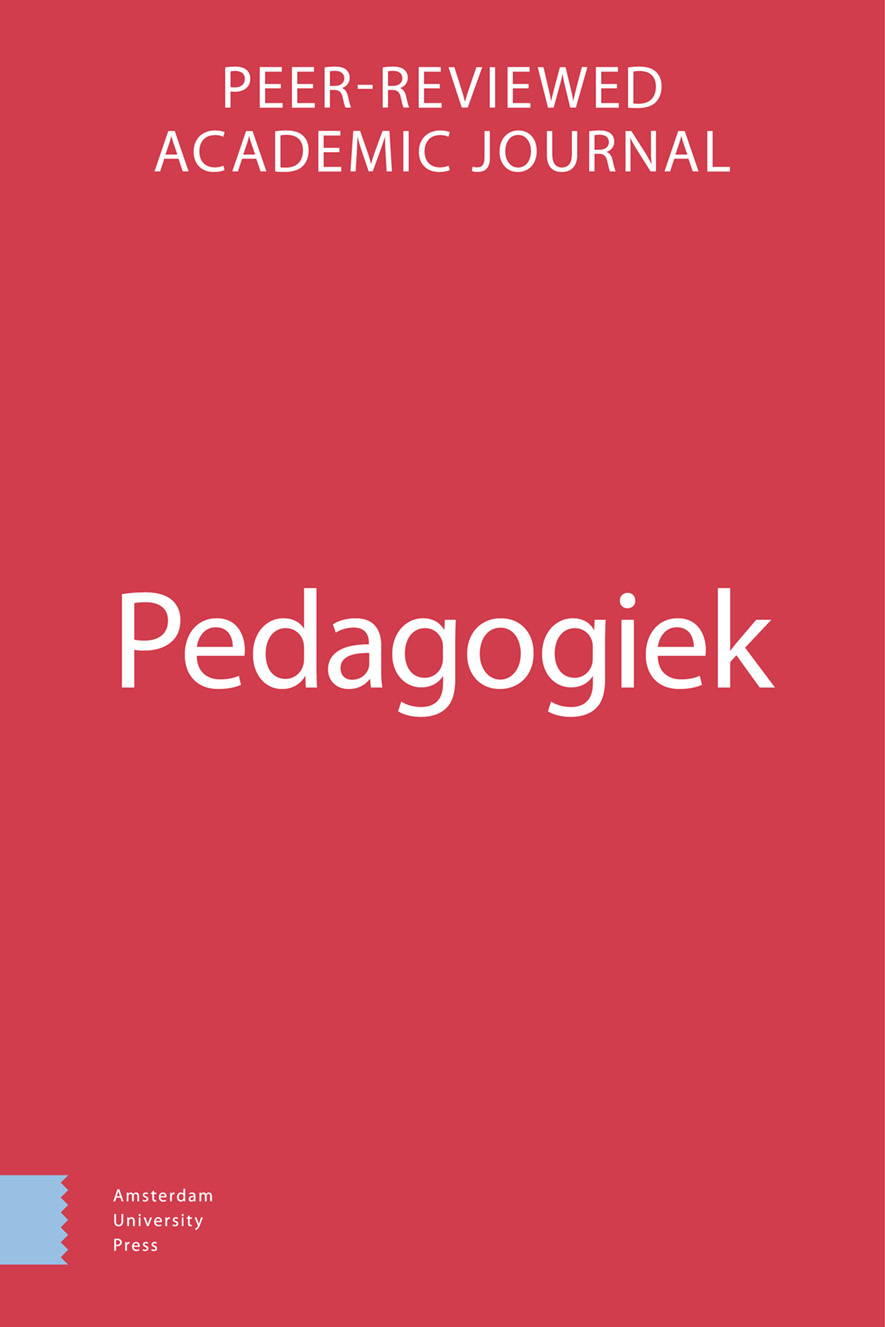- Home
- A-Z Publications
- Pedagogiek
- Previous Issues
- Volume 38, Issue 3, 2018
Pedagogiek - Volume 38, Issue 3, 2018
Volume 38, Issue 3, 2018
-
-
Naar niet-confessioneel levensbeschouwelijk onderwijs in een verzuild onderwijsstelsel
More LessAuthors: Paul Vermeer & Leni FrankenAbstractTowards non-confessional worldview education in a pillarized education system: a plea from the low countries
In this article the claim is raised, that the pillarized education system of Belgium and the Netherlands interferes with the way the challenges of modern secular and plural society are addressed in worldview education in school. After a brief sketch of the education systems of both countries and the way worldview education is formally embedded in these systems, a critical analysis of the actual practice of worldview education in Belgium and the Netherlands reveals four major problems: it is organized along religious and ideological dividing lines, it is fragmented, it is no longer desired and its content is faded. Following this critical analysis, the authors make a plea for non-confessional worldview education for all pupils in all schools organized and supervised by the state.
-
-
-
Opvoedgedrag onderzoeken bij ouders met verschillende culturele achtergronden
More LessAuthors: Merel de Wit & Patty LeijtenAbstractStudying Parenting Practices in Parents with Different Cultural Backgrounds: Methodological Difficulties and Practical Recommendations
Studying parents with different cultural backgrounds improves our understanding of differences and similarities in parenting and child development. This helps us to refine theories, which, at present, are mostly based on research among “western” parents. Measuring parenting practices in parents of different cultural backgrounds, however, is complex because most measures do not explicitly take cultural differences into account. First, parents’ cultural background might influence the extent to which measurements are affected by biases. Second, parents of different cultural backgrounds do not always express concepts similarly. As a consequence, operationalizations of such concepts might not be accurate for parents of different cultural backgrounds. This paper discusses the challenges that researchers face when studying parenting practices in parents with different cultural backgrounds. We also offer practical recommendations to overcome these challenges: (1) carefully consider the fit between measures and the cultural background of participants; (2) evaluate the accuracy of the measurements by using multiple measures; (3) increase validity by distinguishing between items that measure parenting styles and items that measure parenting behaviors; and (4) combine qualitative and quantitative research to improve interpretation of quantitative findings. We discuss how careful integration of these strategies can help improve the cultural sensitivity of parenting measures.
-
-
-
Tijd voor pedagogiek
More LessAuthor: Gert BiestaAbstractTime for ‘pedagogiek’: On the importance of ‘pedagogiek’ for teaching and education
In this slightly edited version of my inaugural lecture, I try to show in three steps what the unique and distinctive contribution of ‘pedagogiek’ to the theory and practice of education consists of. I do this, firstly, by characterising ‘pedagogiek’ as an interested science of action, and by emphasising that the central interest of ‘pedagogiek’ has to do with emancipation, that is, with grown-up ways of leading one’s life. I use this, secondly, to debunk a rather common misunderstanding about the role of education in the formation of the person, by showing that this is not about the formation of individuals according to certain images or ideals, but rather is orientated towards the question of what it means to exist as (a) person. This reveals that ‘pedagogiek’ is concerned with existential questions: question about what it means to live one’s life, individually and together with others. In the third and final step, I show what this means for schooling, making a case for subjectifying education and a flipped curriculum, and outlining the connection with the question of democracy. I conclude by highlighting two areas for further research. Firstly, in order to counter a strong emphasis in education on observable behaviour, I make a case for the importance of interiority. Secondly, I suggest that we should not see education as a field in which we can apply humanistic values, but that we should rather raise the question what the fact that we are beings who teach and can be taught reveals about our humanity and human-ness.
-
Most Read This Month

Most Cited Most Cited RSS feed
-
-
Tijd voor pedagogiek
Author: Gert Biesta
-
- More Less

